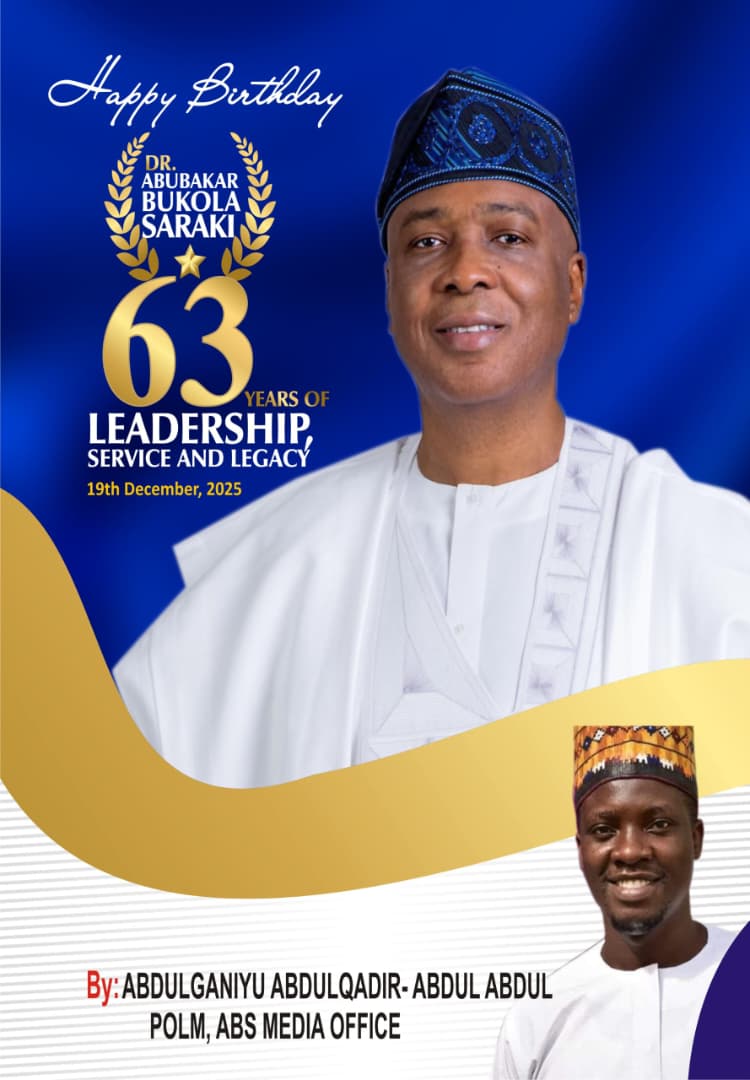Kwara SUBEB: Active Citizens demand Transparency and Accountability in Public Governance

By Abdulsalam Oniyere
Transparency fosters trust, while accountability brings progress. However, it is disheartening that some elected officials and public office holders, particularly within the Kwara State Universal Basic Education Board (SUBEB), appear to regard their positions as opportunities for personal enrichment rather than as platforms for serving the public. This self-serving mentality has far-reaching consequences, affecting not only the present generation but also future ones. The absence of transparency and accountability in governance leads to corruption, the mismanagement of public funds, and substandard execution of projects, all of which undermine the development efforts intended to benefit the populace. Public officials are entrusted with the responsibility of ensuring efficient and ethical governance, yet without robust accountability measures, the integrity of public service is compromised, eroding public confidence in government institutions.
The Freedom of Information (FOI) Act is a powerful tool that empowers citizens to demand transparency and accountability from public institutions, thereby fostering an environment of openness in governance. A recent FOI request submitted to the Office of the Chairman of SUBEB, Professor Shehu Raheem Adaramaja, by the Elites Network for Sustainable Development (ENetSuD) sought comprehensive details on all projects executed by SUBEB since 2019. The request encompassed critical information regarding project budgets, actual funds released, deductions made, payment certificates issued, and details concerning contractors involved in the projects. This initiative underscores the importance of transparency in governance, as it enables stakeholders and the general public to scrutinise government expenditures and the implementation of developmental projects. In an era where corruption and inefficiency remain significant challenges, such efforts serve as a necessary check on public institutions and their officials, compelling them to uphold the highest standards of integrity.
ENetSuD’s FOI request to SUBEB outlines eleven specific items of information that are crucial to understanding the agency’s financial and operational dealings. These include the annual list of projects executed, the amount budgeted for each project, actual disbursement of funds, records of lawful deductions, details of payments made to contractors, the technical scope of projects, payment certificates, the priced Bill of Engineering Measurement and Evaluation (BEME) or Bill of Quantities (BoQ), contractor information, project locations, and the current status of each project. Such meticulous scrutiny not only ensures transparency but also serves as a preventive measure against financial misappropriation and inefficiency. It is incumbent upon Dr Lawal O. Olohungbebe, the head of the Kwara State Ministry of Education and Human Capital Development, under whose purview SUBEB operates, to ensure that his agency adheres strictly to transparency standards. By proactively embracing transparency, SUBEB can foster trust and confidence among citizens, reinforcing the belief that public resources are being utilised effectively and for the intended purposes.
The availability of detailed project information is essential for maintaining transparency and accountability in governance. When such information is readily accessible to the public, institutions like SUBEB can demonstrate their commitment to ethical leadership. By enabling citizens to scrutinise and evaluate government projects, transparency serves as a vital mechanism for fostering accountability. A government that is open about its activities enhances public trust and encourages civic engagement, thereby strengthening democracy. Furthermore, transparency prevents the concentration of power in a few hands and mitigates the risks associated with unchecked authority. It ensures that governance is conducted in a manner that reflects the collective interests of the people, rather than serving the personal ambitions of office holders. As such, public institutions must prioritise openness, allowing citizens to participate meaningfully in governance processes.
Interestingly, academic excellence, such as that demonstrated by Professor Shehu Raheem Adaramaja, does not necessarily equate to good leadership or integrity. A strong academic background may signify intellectual prowess, but it does not inherently guarantee ethical behaviour or sound judgment in governance. History has shown that individuals with impressive academic credentials can still engage in corrupt practices or prioritise personal gain over public service. This reality highlights the fundamental need for strong institutions and robust accountability mechanisms to ensure that public officials adhere to principles of integrity and professionalism. Leadership is not solely about knowledge but it demands ethical commitment, moral fortitude, and a genuine dedication to public service. Without accountability structures in place, even the most learned individuals may succumb to the lure of personal enrichment at the expense of societal progress. This is why systems that uphold transparency and accountability are indispensable for ensuring good governance.
Accountability is a fundamental pillar of governance, ensuring that public officials remain answerable for their actions and decisions. Transparent and accountable institutions empower citizens to challenge governance processes and demand responsible conduct from their leaders. In instances where misconduct occurs, accountability mechanisms serve as deterrents, discouraging acts of corruption and financial mismanagement. The ability to hold public officers accountable not only strengthens governance but also contributes to the overall development of society. ENetSuD’s advocacy for transparency and accountability within SUBEB is a commendable effort that should be supported by all stakeholders. Citizens, civil society organisations, and government institutions must collectively uphold accountability as a cornerstone of governance, ensuring that officials remain true to their responsibilities and commitments. Governance must be conducted with the highest level of integrity, ensuring that public resources are channelled towards developmental initiatives that benefit the people.
In conclusion, transparency and accountability are indispensable to good governance. Public institutions, including SUBEB, under the leadership of Professor Shehu Raheem Adaramaja and the supervision of Dr Lawal O. Olohungbebe, must uphold ethical governance to foster public trust and ensure the prudent management of public resources. ENetSuD’s FOI request to SUBEB is a laudable initiative that aligns with the principles of open governance and accountability. How SUBEB responds to this request will serve as an indication of its commitment to transparent governance. Ultimately, fostering an environment of openness and accountability will not only enhance trust between the government and citizens but will also promote responsible leadership and sustainable development. If public institutions are held to higher standards of accountability, governance will be more inclusive, transparent, and beneficial to all.
Abdulsalam Oniyere write from Ilorin.




